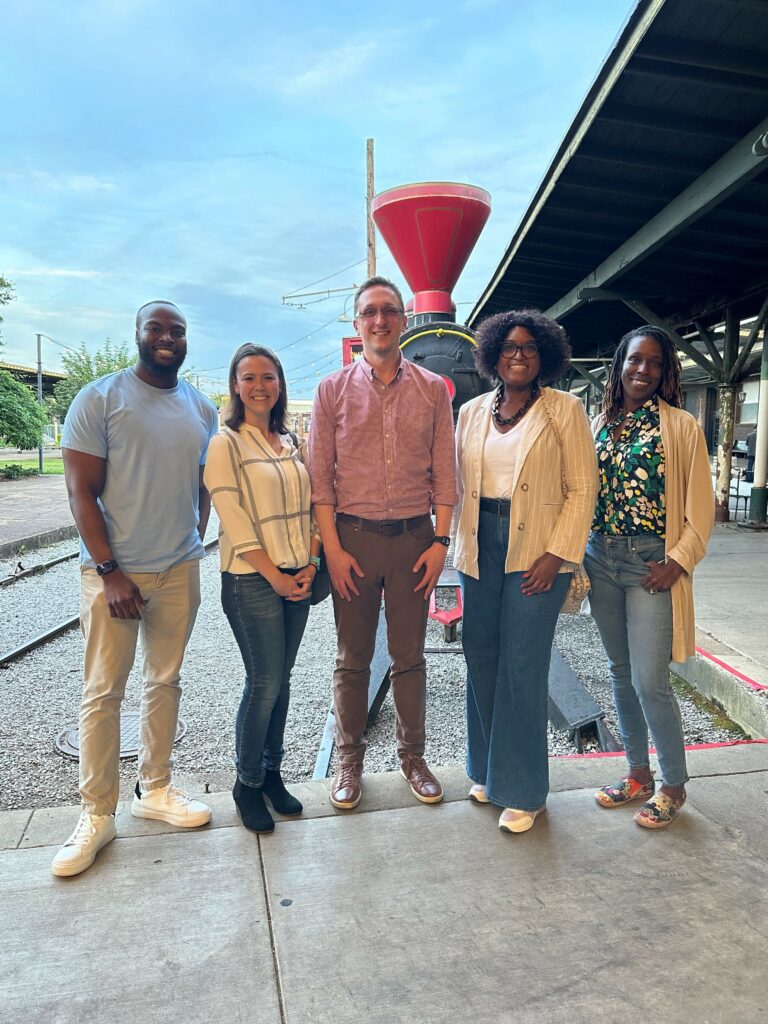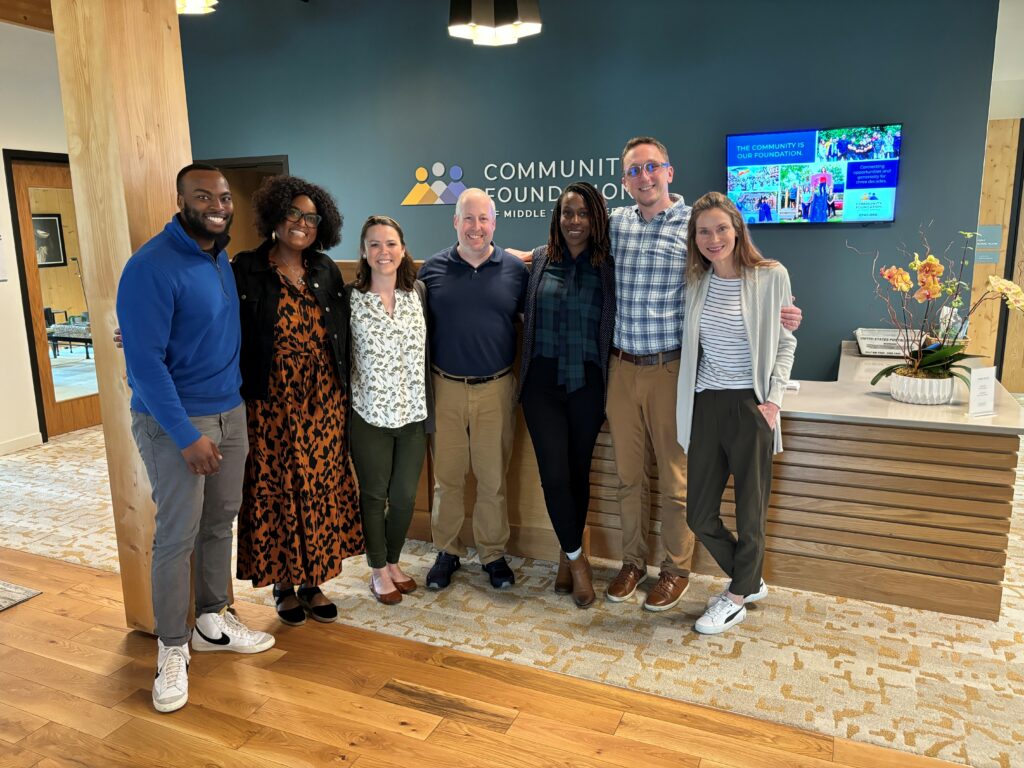by April Carter, Chief Programs Officer, Tennessee Nonprofit Network
“What do you think, April?” Those five simple words have been foundational to my success and to the thriving culture of my place of work. There are so many things I love about being a team member at Tennessee Nonprofit Network, but the sense of inclusiveness and belonging are some of the highest on my list.

If I can be honest, I work with some seriously brilliant people! The wealth of experience, education and “know-how” is rich and it’s deep. It’s so exciting to hear the ideas spring forth and to see plans unfold for our programming. The most beautiful part of this is that no one on our team has to sit back and watch “the magic” happen. Every single team member is a part of it. Our President & CEO, Kevin Dean has done a great job of cultivating a culture of inclusion. Asking, “So, what do y’all think?” has become a regular part of our team meetings and is usually the catalyst for inspiring conversation, long planning meetings, and the incorporation of great ideas.
It’s fun to see this play out in our day-to-day work. On any given day, one team member will walk in the office doorway of another, knock, ask if they have a sec, then plop down in the nearest chair and begin with “What do you think about this?” or “I’m stuck on this, what do you think?” From there, we share our genuine thoughts and perspectives, and the ideas start to become realities. We all are able to value and respect other team members’ opinions.
Honestly, this can be intimidating sometimes. More often than not, however, it builds the confidence of our team and the integrity of our work. According to the Harvard Business Review, what leaders say and do makes up to a 70% difference as to whether an individual reports feeling included. To know the same person tasked with leading this entire organization and is accountable for every aspect of operations not only asks for but genuinely wants us engaged in the process and then makes every effort to include staff is very enriching. SHRM released an article about “What Makes an Employer a Great Place to Work” that perfectly sums it up:
When we think of great places to work, we often focus on the perks and benefits that make a workplace more fun, convenient or flexible. But talk to people who study, build or just work at great workplaces and you’ll find that pay, benefits and perks are only part of the story. The foundation of a great workplace lies in a culture of trust and engagement that unites management and the workforce in a common vision that’s not only about success but that describes the type of organization an employer wants to be. “We’re talking about very intentional, people-centric culture,” says China Gorman, CEO of the Great Place to Work Institute, the research and consulting firm behind Fortune magazine’s annual 100 Best Companies to Work For list.
I fully appreciate the perks and benefits of being a team member of TNN: the “let me feed you” culture (SO. MUCH. FOOD.), flexible PTO, staff shared events, great insurance, a loose dress code. I definitely want to hang on to it all. However, I’ve come to learn that working in an environment embedded with trust and authentic engagement far outweighs the perks. When we became Momentum in 2017 (now TNN in 2024), we had to work hard to get to this place, and it wasn’t always easy. It takes commitment on everyone’s part to build a culture like ours.

No relationship can survive or thrive without trust. A professional working relationship is no exemption. Trust is a firm belief in the reliability, truth, ability, or strength of someone or something. I’m so proud that TNN has been able to genuinely cultivate a culture of trust, and it starts from the top. We hold firm in the validity of other ideas, opposing viewpoints, and in the strength of other experiences and perspectives. The underlying trust that comes with asking “What do you think?” is deep and very solid, especially when it’s followed by intentional listening and incorporation of expressed thoughts. I love the way this article by Action Strategies By Design talks about the alignment of trust of inclusion: “Without trust, a diverse and inclusive workplace is not achievable. When trust is the pillar of these critical initiatives, it leads to increased retention, productivity, innovation, creativity, and engagement.”
Knowing that we are all included in the process of “building momentum” and that I am trusted by and I have trust in my entire team is a true blessing that I don’t take for granted.
